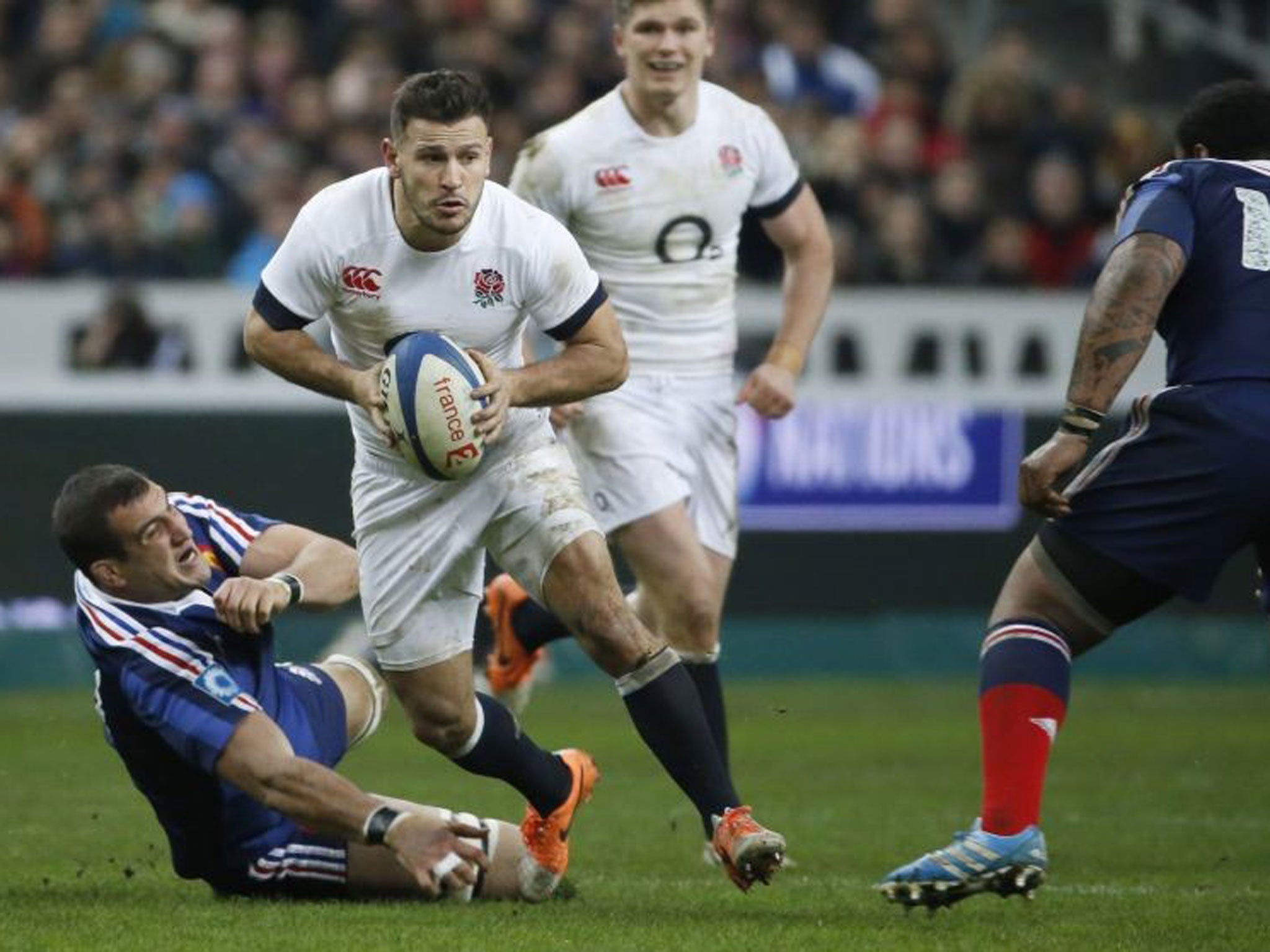Six Nations 2014: Bullish Stuart Lancaster stands by England's Paris tinkering and blames dire start
'I’ll always make the calls in the same way, based on intuition and how the game is unfolding'

Stuart Lancaster, heavily criticised in some quarters for his use of substitutes during England’s narrow Six Nations defeat in Paris at the weekend, made a number of points on the subject yesterday, including the assertion that “hindsight is a wonderful thing”. Yet his principal message was one of defiance: the head coach was not of a mind to accept that he and his fellow think-tankers made a botch of things off the bench – far from it. If he had his time over again, he said, he would probably do the same again.
Lancaster used seven of his eight reserves over the stretch of an exhausting encounter in which the ball was in play for almost 46 minutes, significantly longer than usual. (In the match against the All Blacks at Twickenham before Christmas, the “live time” was 38 minutes, while the average at the last World Cup was a little over 35 minutes). Three of those switches – Alex Goode for Jonny May; Brad Barritt for Jack Nowell; Dave Attwood for Courtney Lawes – were injury enforced while the rest were voluntary tweaks, driven partly by tactics and partly by the suspicion that starting players were close to exhaustion. Two of those changes – Lee Dickson for Danny Care at scrum-half and Tom Youngs for Dylan Hartley at hooker – had generated a good deal of adverse comment.
“I’ve seen substitutions work positively lots and lots of times – seen them have a big impact on a game,” the coach argued. “I thought Ben Morgan’s impact in Paris when he came on at No 8 for Billy Vunipola was very strong. It’s not an exact science, though; if it was, it would be easy.” Would he change his policy in any significant way when England travel to Scotland for this weekend’s Calcutta Cup match? “I’ll make the calls in the way I’ve always made them, based on my intuition and the way I see the game unfolding,” he responded. “I don’t have any pre-determined plan. I have a squad of players I trust. That trust is essential, because some substitutions are made as a result of things beyond your control.”
Six Nations 2014: England player ratings v France
Show all 15Interestingly, Lancaster insisted that he did not make his personnel switches on the basis of data collated by his team analysts, who spend the entire duration of international matches plugged into their laptops, crunching the numbers transmitted by the players’ GPS tracking system. Instead, he goes by instinct. There were, he said, good reasons behind all his tinkerings at Stade de France, not that he was willing to go into them publicly.
“The match wasn’t lost off the bench,” he argued, “and I’m not hanging anyone out to dry. The reason we lost was the start we made. When you concede a try in the first few seconds and go 16-3 down, you leave yourselves with a hell of a mountain to climb, especially in an arena like that. Players on both sides took themselves to unusual places in terms of tiredness: the 46-minute statistic is beyond anything I’ve previously heard of and the contest was a significant step up for a lot of the people involved. We shouldn’t forget that it was a brilliant game.”
England, hardly in a position to lose yet another wing to injury after the loss of Marland Yarde and Christian Wade, received some excellent news last night when Jonny May, the Gloucester back who suffered a busted nose early in the game against Les Bleus, was cleared to play in Edinburgh.
It will not be comfortable for him – a consultant confirmed an undisplaced fracture – and he could require a protective mask of some description, but scan results showed no damage to his eye socket or cheekbone and he is therefore available for selection.
One of England’s star turns in Paris, the outside-half Owen Farrell, was one of several players who suffered with cramp during the final quarter – a problem that led to his missed tackle on the French flanker Yannick Nyanga at the death, which ultimately gave Gaël Fickou the opportunity to score a memorable winning try. Yesterday, the goal-kicker from Saracens acknowledged that the defeat would take a while to flush itself out of the red-rose system.
“Are we still cross? Yeah. Just a little,” he said. “At first you feel sorry for yourself, then you get wound up about it. After that, you try to move on but your mind keeps wandering back. To me, it felt like a performance of which we could be proud and people say that’s all that matters. We put the French under pressure for long periods and, even after the start we had, I never felt we weren’t going to win. We didn’t get the result we wanted, though, and that made it all the more gutting, but we’ve had our review of what happened and we need to get rid of it so we can look ahead to Scotland.”
Farrell was not far wrong in suggesting that England made major strides in their attacking game at the weekend, although he was reluctant to take the credit he deserved for his vibrant work in partnership with Vunipola and Care. “It was as comfortable as I’ve felt, but only because of the work of the people around me,” he said. “While it was a cohesive performance, there’s another level we need to reach and I hope the disappointment of losing brings something more out of us.”
Subscribe to Independent Premium to bookmark this article
Want to bookmark your favourite articles and stories to read or reference later? Start your Independent Premium subscription today.

Join our commenting forum
Join thought-provoking conversations, follow other Independent readers and see their replies